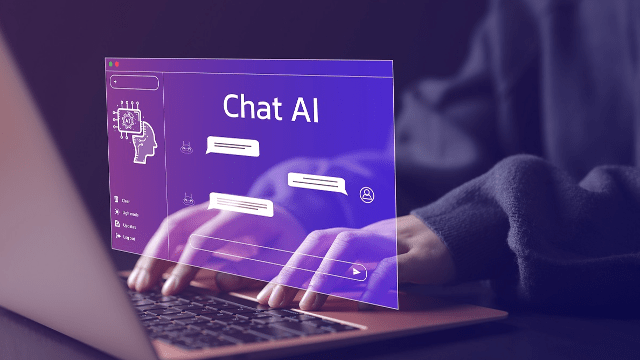Benefit from our new partnership for your ChatGPT prompt engineering training
A brand new offer for your prompt engineering training
The Prompt University by Effixis is an innovative educational institution dedicated to training in Generative AI and Prompt Engineering. It stands out for its focus on real-world applications, ensuring its students acquire skills that are directly applicable in the corporate world.
The 4-hour online course Corporate Prompt Engineering for ChatGPT has been designed to meet the growing need for expertise in this cutting-edge field, particularly for corporate environments. It aims to instil a culture of innovation and efficient AI utilization in businesses, thereby unlocking transformative potential.
EPFL Alumni contributors benefit from a 50% discount: CHF 200.- (instead of CHF 400.-). Contact us at alumni@epfl.ch to get your promo code and get started here!
---
"AI will not replace engineers, but engineers using AI will"

How can this training help you ? Rémi Sabonnadiere, CEO of Effixis and an EPFL graduate in Chemistry and Chemical Engineering, offers his insights into how important it is for engineers to develop their skills in using AI:
In the rapidly transforming landscape of technology, the emergence of tools like ChatGPT, Copilot, and Bard heralds a significant shift in engineering and scientific problem-solving. These Generative AI tools extend beyond mere task facilitation but rather enhance the innovation process, acting as our copilot at various stages, ranging from novelty identification to industrial mock-up generation. This article underscores the role of "AI Thinking" in leveraging these advancements, emphasizing its necessity for engineers in the ChatGPT era as AI will not replace engineers but engineers using AI will.
Generative AI's integration in engineering: a revolution
Generative AI's integration in engineering has been revolutionary, as showcased in Google’s DeepMind new AI tool, GNOMe, which predicted the structure of over 2 million new materials leading to the creation and laboratory testing of more than 700 new materials with applications in energy, computing or electronics. ChatGPT and similar tools have revamped design processes, enabling swift exploration of multiple design avenues, and leading to innovative and efficient solutions. Indeed, leveraging on Generative AI’s ability to have “controlled hallucinations” is a great way to generate out-of-the-box designs, ideas, and processes, acting as the sparring partner of the engineer.
Engineers can also rely on AI for enhanced project management to save precious time as well as to guarantee quality. The gains can be small daily helps like AI tools like Teams Copilot that can listen to videoconferences and take meeting minutes, enabling to save precious time and write objectives observations. But it can also go further, helping project managers brainstorm with AI about important decisions, design and prepare workshops, or enhance communication between stakeholders through tone or technical level adaption.
Another application is the increasing use of generative AI by R&D teams for technology, competitive, and innovation monitoring. By connecting these AI to news sources, scientific papers, and patent offices, engineers can streamline the monitoring process, identify hidden trends and opportunities as well as ask the AI to generate custom newsletters – resulting in massive time gains across large technology teams as well as enhanced monitoring.
A paradigm shift towards « AI thinking » is necessary
This transformative impact, however, demands more than just familiarity with AI tools; it requires a paradigm shift in thinking. Engineers must integrate AI seamlessly into their workflow, not just asking it to perform their tedious tasks, which necessitates a deep understanding and adaptability in their approach—essentials of "AI Thinking."
The challenges posed by generative AI, including risks of misinformation and ethical dilemmas, and overreliance on AI, underscore the need for AI Thinking. Engineers must possess not just technical expertise but also a critical understanding of AI’s capabilities and limitations. This mindset goes beyond problem-solving—it involves a conscientious approach to the ethical application of AI, ensuring adherence to legal and moral standards.
At the heart of AI Thinking lies prompt engineering—the skill of crafting effective queries for AI interactions. But AI Thinking transcends prompt engineering. It embodies the ability to judiciously determine the application of AI technology, maintaining an open and curious outlook towards technological evolution. It's about harmonizing one's thought process with AI logic, being adaptable, and staying informed about its advancements. This adaptability and openness to continuous learning are what set AI Thinking apart from traditional engineering methodologies. It encourages engineers to approach problems with a mindset that values flexibility, creativity, and ethical consideration, aligning with the dynamic nature of AI technology.
The ongoing evolution of AI magnifies the importance of AI Thinking for engineers. This mindset is crucial not only for effective AI interaction but also for understanding its broader implications in the technological domain. Embracing AI Thinking is a proactive step toward participating in the future of technology, going beyond staying current to shaping the trajectory of innovation.
In conclusion, the integration of AI in engineering is a game-changer, presenting unmatched opportunities for progress and efficiency. However, to fully harness these opportunities, engineers must develop and embrace AI Thinking. This comprehensive mindset, encompassing skillful AI interaction, ethical application, and a proactive stance towards learning and adaptability, is indispensable in the ChatGPT era. AI Thinking is not just an asset but a necessity for engineers to remain relevant and make impactful contributions in this new age of technology. As we move forward, the role of engineers in responsibly steering this progress becomes ever more crucial. Embracing AI Thinking is not merely a choice; it's an imperative step toward success and relevance in a rapidly evolving technological landscape.
Rémi Sabonnadiere

Comments0
Please log in to see or add a comment
Suggested Articles



